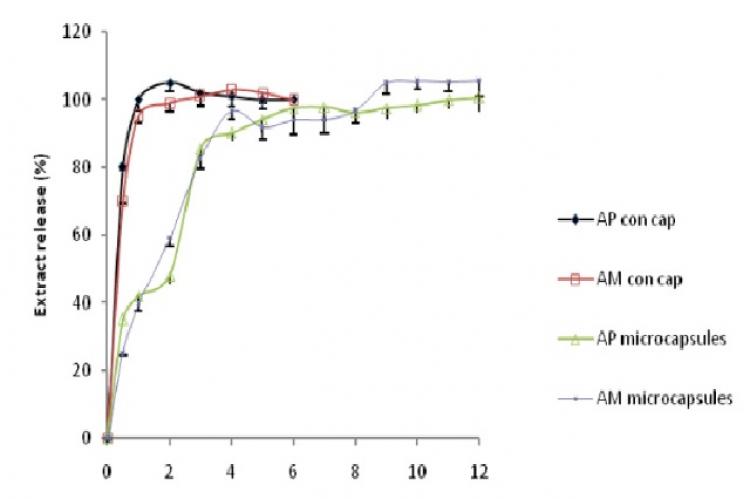This study investigates the properties of microparticles prepared from Andrographis paniculata (AP) and Annona muricata (AM) aqueous extracts for controlled release. Extracts obtained by maceration of the dried powdered plant leaves were microencapsulated by counterion coacervation method. Microcapsules were characterized using Fourier-transform infrared-spectroscopy (FTIR), x-ray difractometry (XRD) and differential scanning calorimetry (DSC). In vitro release studies were carried out at pH 1.2 for 2h and 6.8 for a further 10 h. Release was monitored at 274 and 230 nm for AM and AP, respectively. Encapsulation efficacy was less than 52% for AP and 70% for AM. In vitro drug release at pH 1.2 showed less than 40% release from the microcapsules after 2h while over 90% of extract was released after 6h at pH 6.8. Conventional capsules released the content within 1h in simulated gastric fluid. FTIR, XRD and DSC results indicate the stable character of the extract within the microcapsules. Microencapsulation with chitosanalginate controlled the release of Andrographis paniculata (AP) and Annona muricata (AM) aqueous extracts.
View:
- PDF (773.35 KB)


